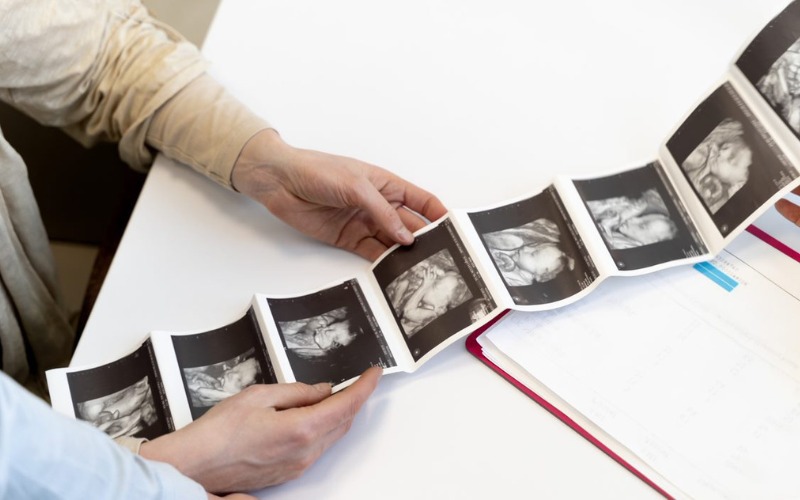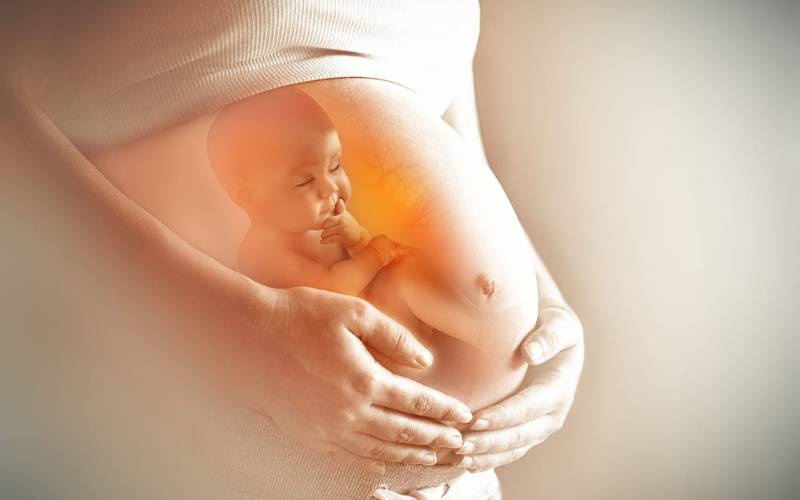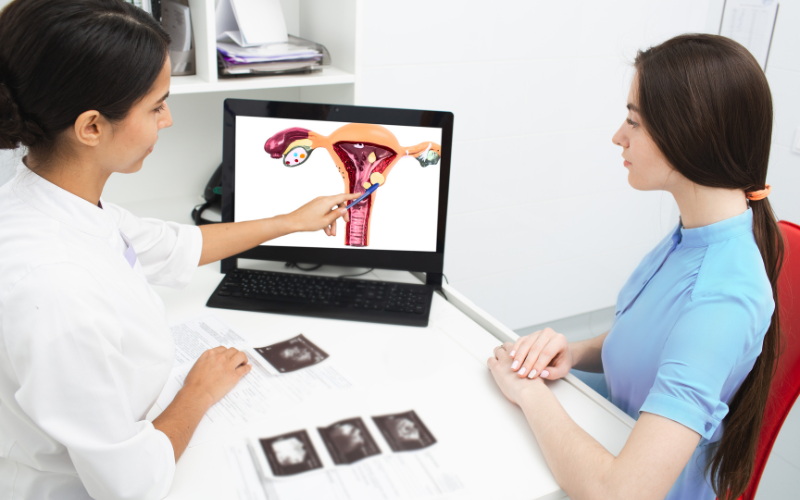Author – Dr. Manju Gupta MBBS, MS
Senior Consultant – Obstetrician & Gynaecologist at Motherhood Hospital Noida
What Is a Growth Scan?
A growth scan in pregnancy is an ultrasound examination that helps monitor the growth and development of the fetus. This type of scan is an important tool for ensuring the health and well-being of both the mother and the baby. In this blog post, we will cover the purpose, timing, and process of growth scans, as well as the information obtained from them and the factors that can impact fetal growth.
Why Do I Need a Growth Scan?
Growth scans are performed to track the growth and development of the fetus throughout pregnancy. They help determine if the baby is growing at a normal rate and check for any potential issues that may affect the health of the mother or baby.
Growth scans are usually performed between 24 to 32 weeks of pregnancy and then again between 36 to 40 weeks of pregnancy. However, in some cases, additional scans may be recommended if the ultrasound doctor suspects any potential problems.
Process Of a Growth Scan
The following is a detailed step-by-step guide to the process of a growth scan:
- Preparation: Before the scan, you will be asked to lie down on an examination table and expose your belly. You may also be asked to drink water and not empty your bladder to help improve the visibility of the fetus during the scan.
- Ultrasound Gel: The radiologists will apply a special gel to your abdomen, which helps to conduct the ultrasound waves.
- Transducer placement: The sonographer will then place a transducer, which is the handheld device that sends and receives ultrasound waves, onto your belly.
- Measurement of the fetus: The sonographer will measure the size of the fetus, including the head circumference, abdominal circumference, and femur length. This information is used to determine the fetal weight and assess if the baby is growing at a normal rate.
- Checking for abnormalities: The sonographer will also check for any abnormalities or problems, such as a low level of amniotic fluid or a problem with the placenta.
- Examination of the fetus: The sonographer will examine the fetus for any signs of distress, such as reduced movement or abnormal heart rate.
- Images and recordings: The sonographer will take images and recordings of the fetus, which will be used to create a detailed report of the results.
- Final check: The sonographer will perform a final check of the fetus to ensure that all necessary measurements have been taken and that there are no concerns.
Information Obtained from a Growth Scan
There are many factors that can influence fetal growth, including the mother’s health, the amount of amniotic fluid, and the presence of any medical conditions such as gestational diabetes. The information obtained from a growth scan helps determine if the fetus is growing at a normal rate and checks for any potential issues that may affect the health of the mother or baby. This information can also help predict the due date and determine the position of the fetus in the womb.
Motherhood India hospitals are well-equipped to provide comprehensive prenatal care, including growth scans. We have state-of-the-art facilities and equipment, and highly skilled sonographers and obstetricians to perform growth scans. These scans are performed in a safe and comfortable environment and provide expectant mothers with valuable information about the health and well-being of their baby.
Benefits of Growth Scans

Growth scans are an important tool for monitoring fetal well-being and ensuring the health and safety of both the mother and baby. They provide valuable information about the growth and development of the fetus and help identify any potential problems early on. A few benefits include:
- Fetal weight estimation: A growth scan provides an estimate of the fetal weight, which is important for determining if the fetus is growing at a normal rate. This information can also help identify if there is a need for further tests or interventions if the fetus is not growing as expected.
- Detection of growth abnormalities: A growth scan can detect if there are any growth abnormalities, such as low birth weight or macrosomia (excessive birth weight). This information can help inform decisions about delivery and potential complications.
- Monitoring fetal well-being: A growth scan provides important information about the health and well-being of the fetus, such as the position of the fetus and the level of amniotic fluid. This can help detect potential problems such as a reduced fetal movement and help provide early intervention if necessary.
- Detection of structural abnormalities: A growth scan can detect structural abnormalities, such as cleft lip, spinal cord defects, and heart problems. Early detection of these abnormalities can help inform decisions about prenatal care and delivery planning.
- Improved prenatal care: A growth scan can help inform prenatal care by providing important information about the growth and development of the fetus. This information can be used to develop a customized care plan for both the mother and the fetus, which can help optimize the health and well-being of both.
Interpretation of Growth Scan Report
The growth scan report is interpreted by a gynecologist. If the results indicate that the fetus is not growing at a normal rate, further tests and scans may be recommended to determine the cause and determine the best course of action. It is important to continue to attend all recommended prenatal appointments to ensure the health and well-being of both the mother and baby.
Conclusion
In conclusion, growth scans during pregnancy are an important tool for monitoring the growth and development of the fetus. They provide valuable information about the health and well-being of both the mother and the fetus.
FAQ’s
Are growth scans safe?
Yes, growth scans are generally considered safe and do not pose any risks to the mother or baby. To know more about risks and benefits of growth scans, you can book an appointment with Motherhood Hospitals by calling 𝟭𝟴𝟬𝟬 𝟭𝟬𝟴 𝟴𝟬𝟬𝟴 or by going here.
How often are growth scans performed during pregnancy?
Growth scans are usually performed between 24 to 32 weeks of pregnancy and then again between 36 to 40 weeks of pregnancy. Additional scans may be recommended if the Sonologist suspects any potential problems.
What happens if the growth scan shows that the fetus is not growing at a normal rate?
If the growth scan shows that the fetus is not growing at a normal rate, the gynecologist will review the results and recommend any necessary follow-up tests or scans. In some cases, additional monitoring may be necessary, or an intervention such as an induction of labor may be recommended to ensure the health and well-being of the fetus.
At Motherhood, the Department of Radiology offers a full range of imaging services, including ultrasound and x-ray. We are dedicated to ensuring that you experience absolutely no negative radiation effects, and that your time with us is as safe and comfortable as possible. We have the best Radiologists in Noida. We are experts in handling complex deliveries, gynaecological, and other surgeries including a range of laparoscopic surgeries. Do take an appointment with the best maternity hospital in Noida at a centre closest to you. Meet with our doctors who will carry out the required investigations, diagnose the issue and recommend the most appropriate treatment, enabling you to lead an active life.
If you wish to get in touch with Dr. Manju Gupta MBBS, MS, please book your appointment here.


 Toll Free Number
Toll Free Number













